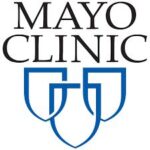The Cellular Stress in Neurodegeneration Laboratory of Ke Zhang, Ph.D., uses the power of genetics, biochemistry, cell biology and neuroscience to understand the cellular and molecular basis of neurodegeneration and to develop therapeutic approaches. His laboratory focuses on two major questions:
- How do different pathophysiological defects interconnect to drive pathogenesis in neurodegeneration?
- How do cells respond to the environmental stress implicated in neurodegeneration?
To address these questions, Dr. Zhang and colleagues use Drosophila and cultured cells, including patient iPS-cell-derived neurons, as model systems. Currently, Dr. Zhang’s research focuses on two related neurodegenerative diseases: amyotrophic lateral sclerosis (ALS) and frontotemporal dementia.
Focus areas
- Nucleocytoplasmic transport. Recently, nucleocytoplasmic transport disruption has been identified as a pathological hallmark of neurodegeneration. Dr. Zhang seeks to understand its molecular mechanism and test whether it can be a therapeutic target.
- Stress granule biology. Stress granules are RNA-protein complexes assembled when cells are under stress. Recent studies have suggested a key role of stress granules in several neurodegenerative diseases. Dr. Zhang seeks to understand how stress granules contribute to neurodegeneration and test whether they can be a therapeutic target.
- Liquid-liquid phase separation (LLPS) and membraneless organelles. Protein aggregation is a common feature of neurodegenerative diseases. Recent studies have suggested the importance of LLPS in protein aggregation. In addition, LLPS mediates the assembly of membraneless organelles in cells, whereas abnormal LLPS can disrupt the dynamics and function of these organelles, which contributes to neurodegeneration. Dr. Zhang seeks to understand how abnormal LLPS contributes to protein aggregation and membraneless organelle defects and test whether it can be a therapeutic target.


